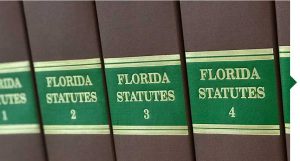Do You Have A Hillsborough County Florida Arrest Warrant?
Posted by David C. Hardy on June 24, 2019

Do you or a loved one have a Hillsborough County, Florida arrest warrant?
A Hillsborough County, Florida arrest warrant is an order directing law enforcement to take a person into custody. If you or a loved one has an arrest warrant in Hillsborough County, Florida, the situation probably seems very frightening.
However, an experienced Tampa arrest warrants attorney can help you manage this situation. There are a variety of ways to resolve a Tampa arrest warrant, and some of these ways are far more comfortable and convenient for an accused than others. That’s why it’s important to hire a Tampa criminal defense attorney that is experienced in resolving Hillsborough County Florida warrants.
Are All Hillsborough County Arrests Made Pursuant to an Arrest Warrant?
No. A Hillsborough County, Florida arrest can take place in a number of ways, and many Hillsborough County arrests are made without an arrest warrant.

The Florida Statutes set out the rules regarding arrest warrants and bond hearings.
For example, if a Tampa Police Officer witnesses a person committing a misdemeanor or a felony, the officer may arrest the person and bring them to the Hillsborough County Jail. For instance, if during a traffic stop a Tampa Police Officer smells cannabis coming from the car, searches the driver, and then finds 30 grams of cannabis in the driver’s shirt pocket, the officer may arrest the driver and charge him with felony possession of cannabis (20 grams or more). The Tampa Police Officer’s authority to arrest the driver comes not from an arrest warrant signed by a judge, but rather from a Florida law that states that when a law enforcement officer has probable cause to believe that a person has committed a felony in the presence of the law enforcement officer, the officer can make an arrest.
What Are Some Types of Arrest Warrants in Hillsborough County Florida?
A Probable Cause Arrest Warrant:
According to Florida law, if a judge, after reviewing a written document written by a police officer called a complaint, is satisfied that there is probable cause to believe that a person has committed a crime, then the judge can issue an arrest warrant for that person. For example, let’s say that two friends get into an argument, and then that argument turns into a fistfight. Frequently, the loser of the fight will go to the Tampa Police and claim that he or she was attacked and is the victim of a battery in Tampa. Law enforcement may then ask a judge to issue a Hillsborough County arrest warrant for the person that won the fight. A Hillsborough County Judge will review all the evidence, and then make a decision as to whether or not there is probable cause to believe that a battery was committed and that the person accused is the one that committed the battery. Probable cause is not a high standard of proof, and unfortunately, many innocent persons are arrested for crimes that they did not commit.
A Bench or Capias Arrest Warrant:
Another type of Hillsborough County arrest warrant is called a bench warrant, also known as a capias warrant. Capias is the Latin word for arrest. If a person fails to appear for court in Hillsborough County, a judge may order a capias warrant. For example, let’s say that a person gets arrested and charged with DUI in Tampa. If the person that was arrested for DUI and later bonded out of jail does not show up at his or her court date, the judge will issue a bench warrant (also called a capias warrant). Then, law enforcement will go out and try to find and arrest the person and bring them to jail.
A Direct File Arrest Warrant:

Tampa arrest warrants are often a result of the Hillsborough County State Attorney’s Office direct filing a case with the clerk’s office.
Another type of Hillsborough County arrest warrant is called a direct file arrest warrant. In a direct file, a state prosecutor alleges that a person has committed a crime. Frequently, the accused person has never been arrested for this alleged crime.
This type of warrant is called a direct file because the prosecutor files the charge directly with the clerk – without going through the Tampa Police or Hillsborough County Sheriff’s Department. When the Hillsborough County State Attorney’s Office charges a person via the direct file process, the clerk’s office will issue an arrest warrant for the accused.
For example, let’s say that without permission, a person writes a check from their roommate’s checkbook in order to buy a new bike. When the roommate finds out, he gets angry and goes to the police to file a report. The police then send that report to the State Attorney’s Office, who decides to file formal charges. When the State Attorney’s Office decides to direct file a criminal charge, the clerk’s office will issue an arrest warrant for the person’s arrest. Then, law enforcement will go out and try to find and arrest the person and bring them to jail.
Violation of Probation Arrest Warrant (VOP Arrest Warrant):
When a person pleads guilty to a Hillsborough County misdemeanor or a felony charge, a judge may put the person on probation. While on probation, the person may have to perform community service hours, pay a fine, attend educational classes, or participate in a drug treatment program.
However, sometimes people violate the terms of their probation, which results in a probation officer asking a judge to issue a violation of probation arrest warrant. Unfortunately, when a Hillsborough County judge issues an arrest warrant for a violation of probation, the person does not have a right to a bond. Therefore, the person could be stuck in jail until a violation of probation hearing can take place.
What is a Hillsborough County “No Bond” Warrant?
When a Hillsborough County judge issues an arrest warrant, the judge can either set a bond or order that the person be held at the jail without a bond. If the Hillsborough County warrant includes a bond amount, then the accused can bond out of jail. However, if the Hillsborough County warrant is a “no bond” warrant, then the person must stay in jail until they are brought before the judge that issued the arrest warrant. Unfortunately, that can sometimes take several weeks.
What To Do If You Have A Hillsborough County Arrest Warrant?
If you have a Hillsborough County arrest warrant, you’re best option is to hire an experienced Tampa arrest warrant attorney. There are a number of ways that a Tampa arrest warrant lawyer can help you to resolve an arrest warrant.
First, a Tampa arrest warrant lawyer can guide you through the Hillsborough County self-arrest process. Persons with Hillsborough County arrest warrants can in most cases avoid having to go to jail by hiring a bondsman and then turning themselves in to the Hillsborough County Sheriff’s Office. The process does not require having to be handcuffed or having to change into a jail uniform. Some people describe this process as like going to the Florida DHSMV to get a new driver’s license.
Second, a Tampa arrest warrant lawyer can appear in court on your behalf and ask the judge to withdraw the warrant and release you on your own recognizance.
Third, if the Hillsborough County arrest warrant is based on a capias for having missed a court date, a Tampa arrest warrant lawyer can file a motion to the judge explaining the reason for the missed court date, and asking the judge to withdraw the warrant.
How Do I Know If There Are Any Hillsborough County Warrants Out For My Arrest?
Search the Hillsborough County Florida Sheriff’s Office website to inquire if you have a warrant for your arrest in Hillsborough County.
Search the Florida Department of Law Enforcement’s website to see if you have a warrant in Hillsborough County as well as other Florida counties.
Are you looking for the best Hillsborough County Florida Arrest Warrant Lawyer? Contact Attorney David C. Hardy

Nationally and Florida Board Certified Criminal Trial Attorney David C. Hardy is a former Tampa prosecutor that has extensive experience handling criminal cases.
Tampa attorney David C. Hardy is a former state prosecutor that now represents persons accused of crimes. He is Board Certified by the Florida Bar and the National Board of Trial Advocacy as an Expert in Criminal Trial Law. He has extensive experience helping his client’s resolve Hillsborough County arrest warrants. Attorney David C. Hardy has the knowledge, skills, and experience to guide you through the Tampa arrest warrant process and obtain the best possible results. Call the Hardy Law Firm, P.A. and today and get help now.
Posted in Criminal Procedure, Florida Criminal Defense

David C. Hardy
David C. Hardy is a criminal defense attorney with offices in Tampa, Florida. He is a former prosecutor that is Board Certified by the Florida Bar and The National Board of Trial advocacy as an expert in criminal trial law. He practices in the areas of federal criminal defense, Florida criminal defense, and Florida DUI defense.
